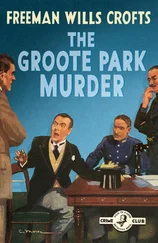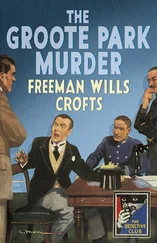The rest of the morning was devoted to packing Henry’s trunk, and preparing for his journey. When the whirl of departure was over, and they had watched him disappear into the mist and gloom of the afternoon, Mary returned to the parlour to warm herself by the fire, and reflect on the slow monotony of a wet day in the country, with nothing but the prospect of cribbage with her brother-in-law to enliven it.The only slight communication from the Park was a short note from Tom Bertram by way of reply to Henry, but it contained no further tidings from Cumberland, and consideration for the footman standing shivering in the dark at the outer door prevented Mary from sending any word to Julia. She would have to wait for better weather, and as she was used to walking, and had no fear of either path or puddles, she was confident that she, at least, would not be too long confined to the house.
However, in this, she was to be disappointed. It was a further four days before even Mary could venture outdoors, four days that brought no further news, either from the Park, or from Henry, though in truth she had not expected a letter from her brother so soon. The next day was Sunday, and a brief cessation in the rain making it possible to attend church in the morning, Mary was in eager expectation of the Bertram carriage at the sweep-gate. She had no great hope of Lady Bertram, but the sight even of Mrs Norris would be a relief after so many days without seeing another human creature besides themselves; and while Mary’s sympathy was for Sir Thomas’s wife and children, she could not but acknowledge that his sister-in-law might prove a more useful and communicative source of intelligence.
The church was crowded — especially so, given the unfavourable weather — and it soon became apparent that all the lookers-on of the neighbourhood had heard of Sir Thomas’s misfortune, and hoped, like Mary, to gain some further news as to his condition. Mary felt ashamed to be part of such a general and importunate inquisitiveness, and all the more so, when she saw Julia Bertram being hurried to the family pew by her aunt, to the audible whisperings of the rest of the congregation. A brief exchange of civilities was all that was possible before the service, and Mary was relieved to find that Dr Grant made no reference to the events at the Park in his sermon, and the text for that Sunday was mercifully insipid; in Mary’s experience, Holy Writ had an unpleasant habit of being only too horribly appropriate.
When the service was over, the congregation hurried out into the church-yard, where the clouds had dispersed across the sky, and the sun had appeared for the first time in days. Mary shrank from the throng surrounding Mrs Norris, especially when it became evident that she was more intent on receiving congratulations on her son’s forthcoming wedding, than commiserations for the family’s sufferings. "If poor Sir Thomas were fated never to return," she was saying gaily, "it would be peculiarly consoling to see Edmund and our dear Fanny married. And then, of course, I will be taking up residence with them at Lessingby Hall, which is unquestionably one of the finest houses in the country. The interiors alone cost the late Mr Price over eight thousand pounds."
Mary took Julia’s arm, and led her gently to one side. She judged it best not to press her on the subject of her own health, and confined herself to asking after her mother and sister.
Julia shook her head sadly. "There is no change. My mother has been reduced to a pitiably low and trembling condition, starting at every knock at the door, impatient for every new message, and then distraught when it comes, and brings no relief."
"And your sister?"
"My dear Miss Crawford, I cannot tell you. She is one moment overwhelmed with grief, the next unaccountably light of heart, as if some intolerable weight had been lifted from her. And as for Fanny, she keeps mostly to her room. Her maid tells me she has taken to walking in the garden in the early morning, before anyone else has risen, but the rest of the day she hides herself away, and will see no-one."
Julia would have said more, but they were interrupted at that moment by Mrs Norris, who began to scold her niece for dawdling, when there was so much employment awaiting them at the Park.
"Really, Julia, this is hardly the time for idle tittle-tattle. You know as well as I do that we still have the bridesmaids’ gowns to finish this afternoon. And after I have been slaving myself half the night to contrive yours from what remains of that blue satin, you can at the very least give me your help in putting it together. There are but the seams, you know; you may do them in a minute. I should think my self very lucky to have nothing but such a simple task to do, but I will have to give all my attention to the filigree for dear Fanny’s veil — that will not stitch itself, I can tell you. And we have still not received those shoe-roses from Northampton, despite all the haberdasher’s assurances, and no doubt the task will fall to me to resolve, as usual, and meanwhile here you are wasting your time gossiping."
Seeing tears in Julia’s eyes, Mary hastened to renew her offer of assistance. Mrs Norris was evidently surprised, and looked her up and down for a moment before replying, "Well, I suppose you might be of some use for the hems. anything that does not shew, and requires little refinement, may perhaps be entrusted to you. If you care to come to the Park in the morning, the housekeeper will direct you as to what you should do."
She then gave a stiff bow, and led her niece away to their carriage before Mary was able to reply.
Mary rose early the following morning, and left for the Park as soon as she had breakfasted. After so many days of rain, it was a bright, clear morning, and as Mary made her way towards the house she thought of the task that awaited her, and could not suppress a smile. If Mrs Norris had only known, she would not think of wasting her talents on the tedious drudgery of hems. Mary had been taught fine needlework when still a young girl, and shewed a rare aptitude for the most intricate and delicate lacework. Indeed, after their uncle died there was a time — a very short time — when she had been obliged to support herself by placing her skills at the disposal of the fashionable ladies of Hanover-square and Berkeley-street. Her work was highly prized, and much sought after, especially for wedding gowns, but Mary took no pleasure in it, and nothing but the direst necessity would induce her to adopt such an expedient again. It was long indeed, before she could take up her needle for anything but the most common-place work, but it still gave her pleasure to devise beautiful things for those she loved, and she had smiled to herself more than once when a shawl she had embroidered for Mrs Grant was admired in the Mansfield Park drawing-room.
Sir Thomas’s graceful, elegant house looked particularly beautiful in the bright sun, and the walk from the parsonage shewed it to best advantage, the lawns dotted over with timber, and the handsome, stone house standing well on rising ground. There was mist in the hollows, and in the curve of the valley, the workmen were beginning their labour on the channel for the new cascade; the sound of their voices carried across to Mary on the mild morning air. It was a charming view, of a sort to ease the mind, and lift the spirits, and Mary entered the house with a lighter heart than she had known for some days past.
But what was peace and harmony outside, was uproar and disorder inside. Servants were running hither and thither, doors were banging, and the house was all noise and confusion. Mary stood in the entrance, as motionless as she was speechless, scarcely knowing what to think or do, when the door to the drawing-room flung open, and Julia came rushing towards her, threw herself into her arms, and cried, "Oh Mary, Mary, thank God that you are here!"
Читать дальше












